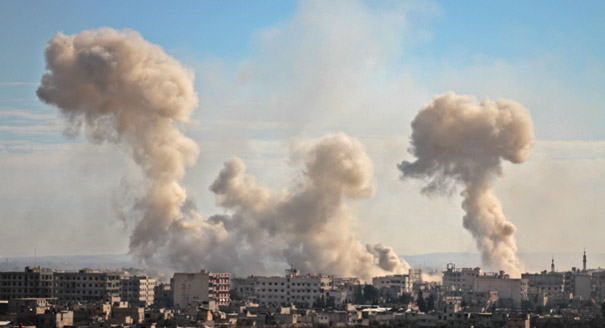Subhi Hadidi | Syrian literary critic, commentator, and translator
This question reminds me of a line of poetry by Abdul-Ghani al-Nabulsi, a 17th century Damascene Sufi, who described with heavy irony the dilemma of a man thrown into the sea with his hands tied, and ordered not to get wet!
In 2011 millions of Syrians revolted peacefully against a four-decade-old barbarous regime of despotism, state-terror, corruption, and family rule. All the bright moments of triumph that followed, all the dark turns of defeat, all the rights and wrongs that took place emerged from that almost paradigmatic need for Syria to turn the page, definitely.
So, yes, it was worth it, at this unique juncture of history more than at any time before. It is worth it still, I think. Yet could Syria have been less horribly soaked in blood? Not as monstrously ravaged? Not invaded by Iran and Hezbollah, Russia, the United States, Turkey, and jihadis of all stripes? But who is to blame, then, other than the victims thrown into a sea of blood with their hands tied!
Yassin al-Haj Saleh | Syrian intellectual and writer, former political prisoner, author most recently of The Impossible Revolution: Making Sense of the Syrian Tragedy
I am extremely ambivalent about the question. On the one hand I have such strong personal reasons to regret the changes in Syria that have led to immense losses for me and for my loved ones, and to unbearable suffering. I mean the abduction of my wife Samira, along with other friends, at the hands of the Islam Army in Douma; and before Samira, that of my brother Feras at the hands of the Islamic State in Raqqa, again with other friends.
At the same time, we were leading an extremely poor life before the uprising. We were denied basic civil and political rights, and were dealt with as slaves politically. My “disappeared” Samira, her sister, her brother in law, two of my brothers, and myself all collectively spent around 45 years in prison, of which my personal share was more than a third. There was no way of living a different life under a regime that openly spoke about remaining in power for eternity, as this would have meant a permanent war against the future.
However, the situation in Syria is a tragedy in which you find yourself divided internally all the time. But when we attribute all that has taken place to the “Syrian uprising” aren’t we submitting to a deterministic logic? One might more legitimately ask: Was there a way other than an uprising to change Syria, in a world that has watched a genocide for seven years, while busily denying it?
Ammar Abdulhamid | Syrian analyst and pro-democracy activist who resides in Washington, D.C., co-host of the upcoming political program Between Sam and Ammar at the Al-Hurra television station
People took to the streets in Syria because they were tired of the endemic oppression and corruption of the regime, as they were of waiting for Bashar al-Assad to undertake serious reform to improve the quality of their lives. In other words their decision to revolt was as necessary as it was legitimate.
To ask whether it was worth it gives the regime its ultimate victory by having us doubt the legitimacy of our cause. The point of hindsight is to help us learn from the mistakes of the past in order to avoid repeating them, not to entice us to regret what happened. In this regard, I am far more troubled by the opposition’s failure to produce an inclusive vision for the future of Syria and a professional body capable of handling the political challenges of domestic and international diplomacy than I am with the decision to revolt.
Ibrahim Hamidi | Senior diplomatic editor covering Syrian affairs at the Al-Sharq al-Awsat newspaper in London
In 2011, there were three conditions in place in Syria: The desire and the need for change; the inspiration provided by the Arab Spring; and regional and international support for the yearning of a growing segment of the Syrian population to rise up against the regime. If the same history and conditions were repeated today, most likely people would do the same thing as in 2011.
However, when one contemplates how the uprising began and where it has arrived seven years later, the reaction is panic. What began as popular protests to achieve local demands changed into armed conflict, then a proxy war that drew in regional and international players. Now, Syrians are fighting the wars of others on their own soil. Understandings are taking place that involve Russia, Iran, and Turkey on one side, Russia and the United States on another, and other states as well. All are being imposed on Syrians—regime and opposition.
In contrast to other situations of major change, such as Eastern Europe during the late 1980s, the Syrians’ misfortune was that their uprising came at a point when the United States and the European states were in decline in the Middle East. Russian President Vladimir Putin used Syria to return to the region and avenge the West’s humiliation of Russia after the dissolution of the Soviet Union.
However, the Syria that we knew is gone, and the clock cannot be turned back. A new Syria is coming into being and the conflict today is about what this Syria will look like.








